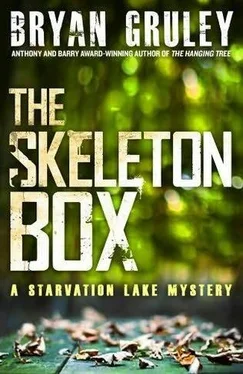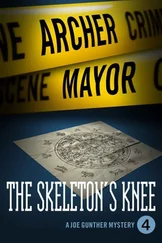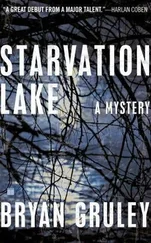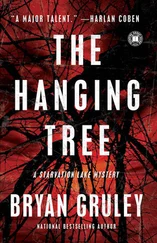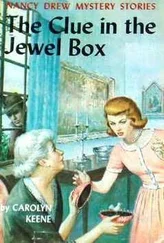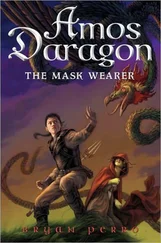Bryan Gruley - The Skeleton Box
Здесь есть возможность читать онлайн «Bryan Gruley - The Skeleton Box» весь текст электронной книги совершенно бесплатно (целиком полную версию без сокращений). В некоторых случаях можно слушать аудио, скачать через торрент в формате fb2 и присутствует краткое содержание. Жанр: Криминальный детектив, на английском языке. Описание произведения, (предисловие) а так же отзывы посетителей доступны на портале библиотеки ЛибКат.
- Название:The Skeleton Box
- Автор:
- Жанр:
- Год:неизвестен
- ISBN:нет данных
- Рейтинг книги:5 / 5. Голосов: 1
-
Избранное:Добавить в избранное
- Отзывы:
-
Ваша оценка:
- 100
- 1
- 2
- 3
- 4
- 5
The Skeleton Box: краткое содержание, описание и аннотация
Предлагаем к чтению аннотацию, описание, краткое содержание или предисловие (зависит от того, что написал сам автор книги «The Skeleton Box»). Если вы не нашли необходимую информацию о книге — напишите в комментариях, мы постараемся отыскать её.
The Skeleton Box — читать онлайн бесплатно полную книгу (весь текст) целиком
Ниже представлен текст книги, разбитый по страницам. Система сохранения места последней прочитанной страницы, позволяет с удобством читать онлайн бесплатно книгу «The Skeleton Box», без необходимости каждый раз заново искать на чём Вы остановились. Поставьте закладку, и сможете в любой момент перейти на страницу, на которой закончили чтение.
Интервал:
Закладка:
Gallagher stood. He lifted the hasp on the box. He took hold of the lid with his gloved hands and eased it open. A musty odor floated up from the open box. I imagined the sort of line that would appear in a newspaper story: The room filled with the smell of death. I watched Gallagher’s face as he examined the inside of the box. Doc Joe moved closer. His face blanched as the judge, whose face did not blanch, reached into the box and handed something to Doc Joe.
The coroner took the skull in one hand, rolled it over into the other. It wasn’t much bigger than a softball and was about the same color and roundness, except for a small, irregular oval circumscribed by a hairline crack in the rear left part of the skull. The dent looked like one a ball-peen hammer might make in a sheet of drywall.
“Jesus God,” Breck said. Whistler dropped his head to his sweatshirt.
I looked at Mom. Her eyes followed the coroner’s hands as he turned the skull this way and that, peering in through the eye sockets and up through the neck.
“Your professional opinion, Doctor?” Gallagher said.
“Purely unofficial, of course,” he said. “But on first glance, looks like a female skull, based on its size.”
“Human,” Gallagher said.
“Certainly.”
“And this?” The judge indicated the dented area.
“Probably some sort of blunt force. Hard to tell whether it’s passive or aggressive. It’s possible she fell. It’s possible somebody hit her with something. Not too terribly different from what happened to Phyllis, actually.” He peered over his glasses at Mom. “I’m sorry, Bea.”
She shook her head softly, pressing a wad of tissue against her lips.
Gallagher put a hand out and Doc Joe placed the skull in it. The judge set it back inside the box. He rested his hands on the edges of the box.
“Beatrice,” he said.
Mom had begun to rock back and forth in her chair, her tongue bobbing inside her lips, making an “N”: “Nonny Nonny Nonny.”
“I haven’t heard that name in a long, long time,” Gallagher said. “Whatever was it supposed to mean, do you know?”
Mom shook her head again. “Nothing,” she said, barely audible.
“Sister Cordelia made cakes for the kids’ birthdays,” I offered.
Gallagher’s smile was gentle. “That’s not quite correct,” he said. “I was a couple of years ahead of Bea, but St. Val’s was a tiny school. Sister Cordelia always made cookies for birthdays. She made cake for Bea’s. Didn’t she, Bea?”
Mom nodded.
“Bea was her pet.”
“She used to keep me in from recess to work on my spelling.”
“Did it work?” Gallagher said, still smiling.
“No.”
Gallagher addressed the whole room now. “I used to listen to detective dramas on the radio,” he said. “I always wondered why that body never washed up. Doc, is there a way to get positive identification?”
“Teeth are loaded with DNA, but I highly doubt we’ll find family to match it with,” Doc Joe said. “Maybe, with the help of the forensics guys in Lansing, we can reconstruct her smile and compare it to old photos, if we have any.”
“Clerk’s office,” I said. “In the microfilm.”
“Here, Horace,” Mom said.
I watched as she loosed my hand, unzipped her handbag, and removed her wallet. She unsnapped a wallet pocket, dug inside it, and produced a small black-and-white photograph. She handed it to Gallagher, who looked at it, smiled, and then handed it to Doc Joe.
“This should do,” the coroner said.
“There’s something else here.”
Gallagher reached into the box and plucked out a leather pouch that looked to be wound with white electrical tape. He turned the pouch around in his hands, inspecting it, then grabbed the scissors from the leather cup on his desk.
“Your Honor,” Dingus said. “I wish you wouldn’t do that.”
“That is evidence, Your Honor,” Eileen said.
Gallagher sliced through the tape and peeled it back from the top of the pouch. “The zipper’s a little rusty,” he said. He pulled on it hard and it tore open with a puff of reddish dust. Gallagher perched his horn-rims on his forehead and peered into the pouch. With two fingers he pulled out a yellowish envelope. He set the pouch aside and squinted at the envelope seal.
“Please be careful, Your Honor,” Dingus said.
“Agreed, Your Honor,” Repelmaus said. “I respectfully submit that these materials be left alone until their relevance and admissibility can be properly adjudicated.”
Gallagher slid a fingernail beneath the seal. The envelope opened. The judge bent slightly and the envelope dipped below his desktop to where we couldn’t see it. He paused, apparently reading. Then he straightened and set the envelope on his desk. In one hand he held some pages that had been folded in thirds.
“This is a letter, or appears to be,” he said. “Written in what looks to be pen, in a rather florid hand, on the letterhead of St. Valentine’s Roman Catholic Church, Starvation Lake, Michigan.” He flipped to the last page. “It is signed by Father Nilus Moreau.”
“Without objection,” he said, “I’m going to read the first page.” He waited, but by now even Repelmaus had given up objecting.
The judge read.
“Father, forgive me, for I have sinned. I have succumbed to the temptations of the flesh, to the venal allure of physical pleasure, to the enrapture of lust and all that goes before it, and with it, and alongside it. I have let sin reign in my mortal body and I have obeyed its desires. I have committed atrocity and tolerated it and sought the false and sinful asylum of denial. I have made company with men who would do the same, while demanding my silence and wicked acquiescence. I seek your divine mercy and everlasting forgiveness as I write these things down on the twenty-first day of August in the year 1950-”
Mom pitched forward over her knees, her hands clenched into fists at her breast. “Mom,” I said, reaching across her shoulders, “are you all right?”
Gallagher looked up. “Beatrice?”
“Go ahead, Horace,” she said. “Just go ahead.”
Nilus met Sister Mary Cordelia at a convent in Midland, when he was an associate pastor at St. John Bosco Catholic Church. She was, he wrote, “as pure and delicate and lovely as a begonia open to the sun.” And merely eighteen years old when she became pregnant with Nilus’s child.
She refused an abortion. Her habit kept her from showing early but, before her belly became impossible to hide, Nilus arranged for her to stay for the rest of her pregnancy with his sister in Sandusky, about eighty miles east. In May 1933, Sister Cordelia gave birth to a girl who was immediately moved to an orphanage in Midland and then, the following year, to a different Catholic orphanage in the town that would soon become Starvation Lake, where Nilus had become assistant pastor of St. Valentine’s. Sister Mary Cordelia followed. She became a teacher at St. Valentine’s and helped at the orphanage.
Nilus and Cordelia vowed to remain chaste and be thankful that they had not been discovered, so they could take secret joy in watching their daughter blossom, if from a distance. Each night, they prayed that the family who adopted the child, unnamed in Nilus’s letter, would never take her away.
“There followed several years of acute and unremitting pain as I struggled to sustain my faith while longings for Cordelia insisted themselves upon me,” Nilus wrote. “It was then that Elizabeth Whistler entered into my life and lured me into the compounding of mortal sin that would damn my soul to eternity, Lord, if not for the saving grace and mercy which I pray you will bestow upon your unworthy servant.”
It was the fall of 1942. Bitsy Whistler was a member of the Women’s Guild at St. Valentine’s. She saw Nilus on occasion at bake sales and pancake breakfasts the guild organized. “Elizabeth was a woman with a heavy soul,” Nilus wrote, “having lost her heroic husband in the world war.” She sought Nilus’s advice-or so Nilus said-and, soon, counsel turned to consolation, which turned to love, or what passed for it between a despondent woman and a priest who labored under the weight of knowing he had made a mistake with the most important decision of his life.
Читать дальшеИнтервал:
Закладка:
Похожие книги на «The Skeleton Box»
Представляем Вашему вниманию похожие книги на «The Skeleton Box» списком для выбора. Мы отобрали схожую по названию и смыслу литературу в надежде предоставить читателям больше вариантов отыскать новые, интересные, ещё непрочитанные произведения.
Обсуждение, отзывы о книге «The Skeleton Box» и просто собственные мнения читателей. Оставьте ваши комментарии, напишите, что Вы думаете о произведении, его смысле или главных героях. Укажите что конкретно понравилось, а что нет, и почему Вы так считаете.
